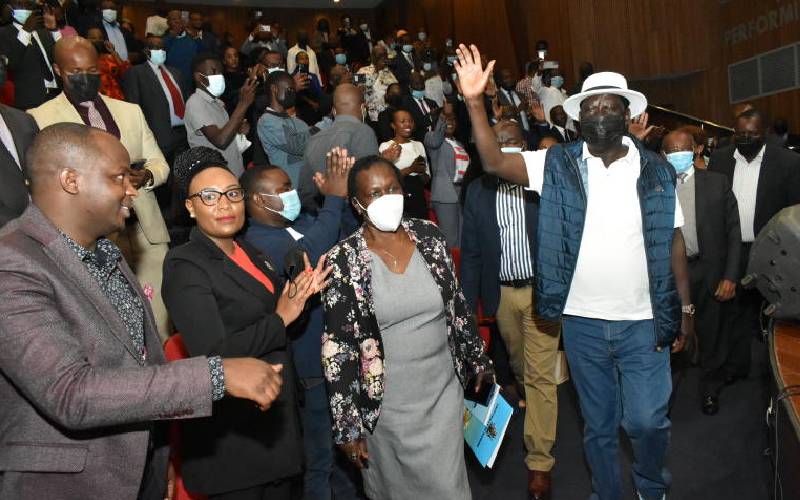×
The Standard e-Paper
Stay Informed, Even Offline

ODM Party Leader Raila Odinga acknowledges greetings from Mt. Kenya Youth Summit Members who had gathered at the University of Nairobi to hear his Manifesto ahead of the 2022 General Election. [Samson Wire, Standard]
On October 15, Justice AC Mrima declared Section 22(1)(b)(ii) of the Elections Act unconstitutional and in violation of Article 10(2)(a) of the Constitution for failure to undertake public participation.